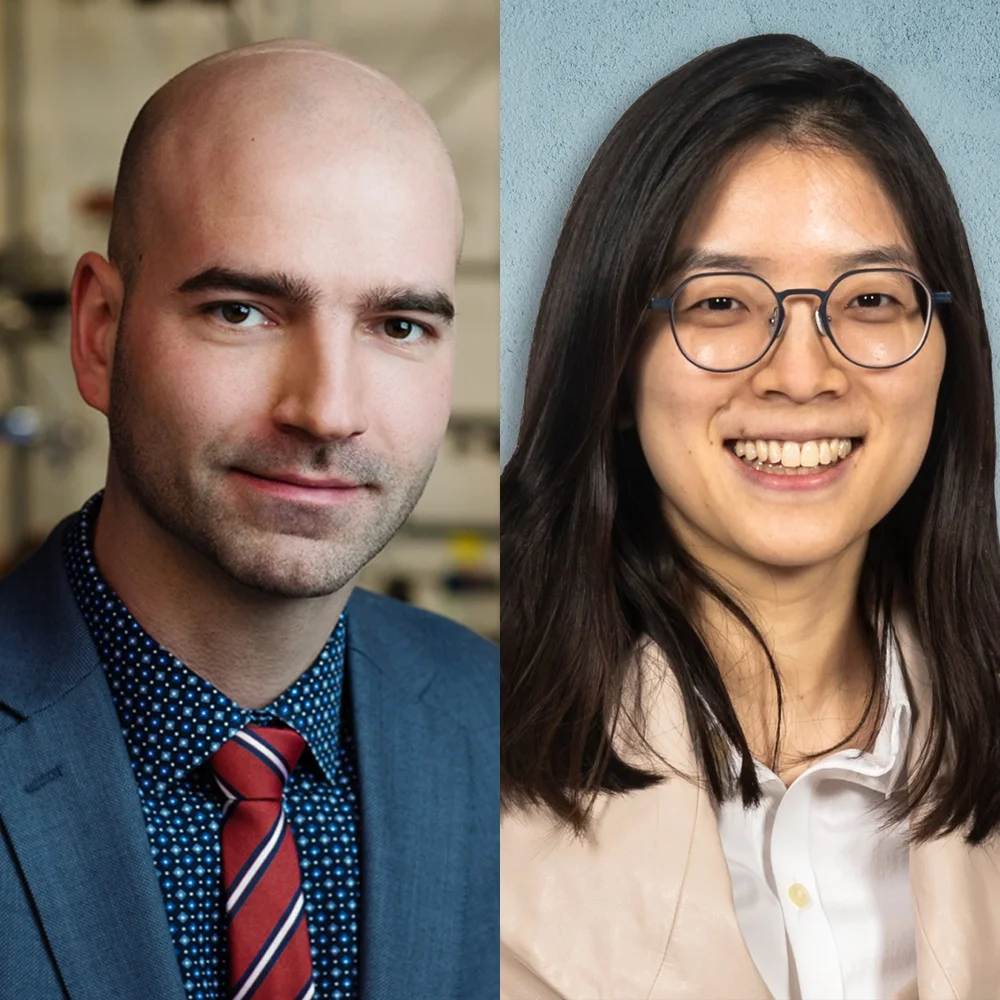
By Jordan Goebig, Cancer Center at Illinois
Interdisciplinary projects designed by University of Illinois at Urbana-Champaign faculty were selected for the Cancer Center at Illinois’ annual seed grant awards, including the projects of two chemistry professors, David Sarlah and Hee-Sun Han.
The CCIL’s seed grant funding has supported transformative transdisciplinary research and collaboration across the cancer research landscape, especially focusing on providing technologies and techniques that can transition from laboratories to clinics.
“The Cancer Center at Illinois’ seed funding initiatives support innovation and discovery at the earliest stages of a major idea,” said Paul Hergenrother, CCIL Deputy Director and the Kenneth L. Rinehart Jr. Endowed Chair in Natural Products Chemistry and Professor of Chemistry. “These pilot projects will encourage new collaborations and develop important research to compete for external funding.”
Here are descriptions of the projects of Sarlah and Han.
Project Title: Elucidating the Role of Minor Cannabinoids on Immune Cell Activation Involved in Lung Cancer Metastatic Progression
Principal Investigator: David Sarlah, Assistant Professor in Chemistry
Research Team: Aditi Das, Associate Professor in Comparative Biosciences, Timothy Fan, Professor in Veterinary Clinical Medicine
Project Title: Establishment of a Spatially Resolved Noncoding RNA-mRNA Interactome Map for Breast Cancer Progression
Principal Investigator: Hee-Sun Han, Assistant Professor in Chemistry
Research Team: Saurabh Sinha, Professor in Computer Science; Prasanth Kumar V. Kannanganattu, Associate Professor in Cell and Developmental Biology
“The CCIL’s grant awards ultimately boost Illinois researchers towards developing novel approaches to fighting cancer. Just as our daily lives have been transformed by inventions by teams of Illinois researchers, there now exists a remarkable opportunity to engineer transformative advances against cancer,” said Rohit Bhargava, CCIL director.
Submitted proposals must demonstrate an ability to foster collaborations across the engineering-biology continuum and leverage research results for future external grants in cancer research. Funds are distributed over two years, beginning in 2020.